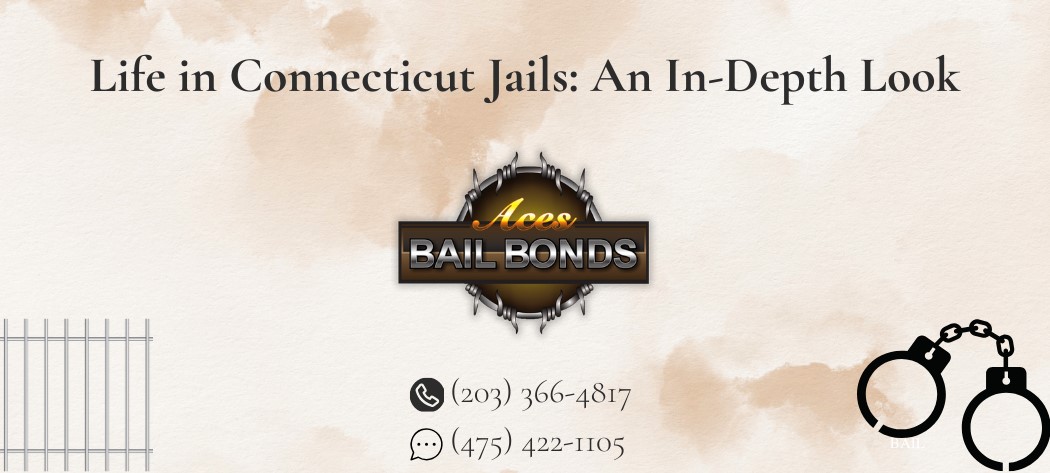
Life in Connecticut Jails: What You Need to Know
Life in Connecticut jails reveals both the harsh realities of incarceration and the ongoing efforts toward rehabilitation and reform. With thousands of individuals held across Connecticut correctional facilities, these jails serve as a critical part of the criminal justice system, directly impacting defendants, families, and communities. For anyone navigating the bail bond process, understanding what life is like behind bars underscores the importance of working with a trusted Connecticut bail bond company to secure release quickly.
The Daily Routine Inside Connecticut Jails
Connecticut jails operate under strict schedules designed to maintain safety and order.
-
Wake-Up Calls – Inmates are typically awakened around 6:00 AM.
-
Meals – Food is served three times daily, often simple fare such as oatmeal, sandwiches, or casseroles. Complaints about food quality and nutrition are common.
-
Work Assignments – Many inmates perform jobs such as laundry, janitorial work, or kitchen duties. While pay is minimal, these assignments provide structure and responsibility.
-
Education & Recreation – Inmates attend classes, vocational programs, or participate in recreational activities as part of their daily routine.
This strict structure highlights why so many defendants—and their families—rely on bail bondsmen in Connecticut to avoid extended stays in jail while awaiting trial.
Rehabilitation and Education Programs
To reduce repeat offenses, Connecticut correctional facilities offer programs such as:
-
GED and Literacy Classes – Helping inmates build basic education and improve employment prospects.
-
Vocational Training – Teaching trade skills that support successful reentry.
-
Substance Abuse Programs – Addressing the high rate of addiction among inmates.
-
Therapy and Counseling – Cognitive-behavioral programs designed to change negative thought patterns.
For defendants who secure release through a Connecticut bail bond agent, these same programs may later play a role in probation or alternative sentencing options.
Mental Health Care in Connecticut Jails
Mental health is a major challenge in the correctional system. Many inmates suffer from untreated illnesses, and the stress of incarceration can make symptoms worse. Connecticut jails employ psychologists and social workers to provide counseling, crisis intervention, and specialized housing for those with severe conditions.
Still, overcrowding and limited resources remain issues—another reason why working with a bail bond company in Connecticut to secure release can be crucial for individuals who need stable care outside of jail.
Family and Community Connections
Maintaining family ties is vital for emotional health and successful reentry. Connecticut jails provide:
-
Visitation Programs – Monitored, in-person visits in designated areas.
-
Phone Calls – A lifeline for inmates, though the cost is often criticized as too high.
-
Mail & Video Calls – New technologies now allow video visitation in some facilities.
For families, posting bail through a local Connecticut bail bondsman allows loved ones to avoid extended separation and better prepare for court.
Challenges in Connecticut Jails
Despite reform efforts, Connecticut jails face ongoing challenges:
-
Overcrowding – Creates tension and strains resources.
-
Staffing Shortages – Limits mental health care and rehabilitation opportunities.
-
Allegations of Abuse – Highlight the need for oversight and training.
The bail bonds system helps reduce overcrowding by providing defendants a path to temporary release while awaiting trial.
Success Stories and Reentry Support
Not all stories are negative. Many inmates use jail time to:
-
Earn GEDs or job certifications.
-
Overcome addiction through structured treatment.
-
Reenter society through transitional programs like work furloughs.
These programs reflect Connecticut’s focus on balancing punishment with rehabilitation. For many, securing bail early through a bail bond agency allows them to pursue community-based programs instead of enduring long periods in jail.
Technology and Innovation in Jails
Modern tools are improving jail management and inmate experience:
-
Video Visitation – Reduces travel burdens for families.
-
Electronic Monitoring – Provides alternatives to incarceration.
-
Data Analytics – Helps track inmate behavior and allocate resources.
These advancements mirror broader reforms designed to make Connecticut’s justice system more effective.
What It Means for Defendants and Families
For those arrested in Connecticut, the thought of jail life can be overwhelming. That’s why the bail bond process is so important:
-
Bail Bonds allow defendants to return home quickly instead of facing weeks or months behind bars.
-
Bail Bondsmen guide families through the paperwork, court requirements, and financial details.
-
Working with a reputable Connecticut bail bond company ensures a smoother process and peace of mind.
Conclusion
Life in Connecticut jails is shaped by strict routines, limited freedoms, and the ongoing struggle between punishment and rehabilitation. While challenges like overcrowding and limited mental health resources remain, there are also positive programs designed to help inmates change their lives.
For families, the best way to avoid the difficult realities of jail life is to work with a trusted Connecticut bail bondsman. At Aces Bail Bonds, we’re committed to helping clients secure release quickly, maintain their dignity, and prepare effectively for their legal defense.
📞 Call (203) 366-4817 for 24/7 bail bond services in Connecticut.

